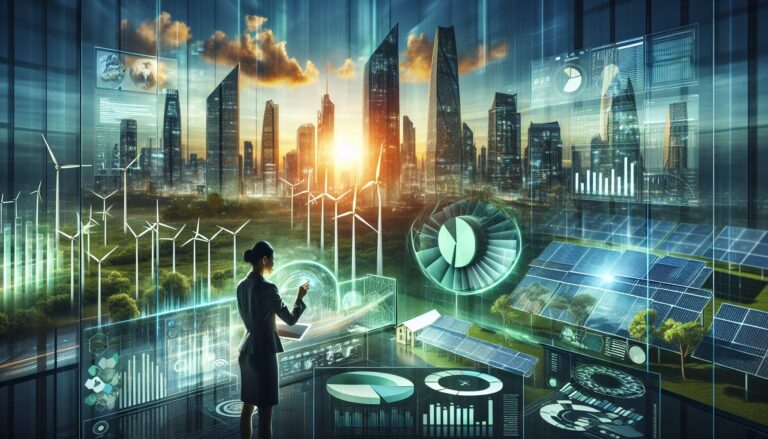The world is witnessing a transformative era, where businesses are adapting and responding to the urgent need for environmental stewardship. With looming climate change threats and a growing awareness among consumers, companies are increasingly integrating sustainability into their strategies. In this blog post, we will explore the implications of current environmental trends on the business landscape and delve into potential future scenarios.
The contemporary state of the environment is a multifaceted issue. Climate change, deforestation, pollution, and resource depletion have led to a fragile ecosystem. However, the silver lining is the heightened consciousness among individuals and businesses alike. Consumers are demanding eco-friendly products, and companies are responding to this call by adopting greener practices and launching sustainable initiatives.
One key trend shaping the business landscape is the rise of renewable energy. As governments promote clean energy alternatives, corporations have the opportunity to pivot towards solar, wind, and hydroelectric power. This not only helps businesses reduce their carbon footprint but also presents a significant cost-saving potential in the long run.
Additionally, the circular economy is gaining traction. Traditionally, businesses followed a linear approach, extracting raw materials, manufacturing products, and disposing of waste. However, the circular economy aims to eliminate waste by designing products with recyclability in mind and reusing materials to create new value. This shift opens up avenues for innovative business models, such as product-as-a-service or the sharing economy, while reducing resource consumption.
Another trend with considerable impact is the rapid development of eco-friendly technology. From electric vehicles to smart grid systems, technological advancements are enabling businesses to operate more sustainably. The integration of artificial intelligence and machine learning further enhances efficiency, leading to reduced waste and energy consumption.
Moreover, businesses are recognizing the importance of transparent supply chains. Corporate social responsibility now extends beyond internal practices to influencing suppliers and stakeholders. From ethical sourcing to fair labor practices, companies are being held accountable for the social and environmental impact of their entire supply chain. This fuels a shift towards greater collaboration among industry players, fostering environmentally responsible practices throughout the ecosystem.
Looking ahead, the implications of these trends are monumental. Embracing sustainability has become a business imperative, as companies that fail to adapt risk obsolescence. Consumers are increasingly making purchasing decisions based on a brand’s commitment to the environment. Additionally, stricter regulations and carbon pricing mechanisms are looming, which will disproportionately affect those businesses that have not embraced sustainability.
In conclusion, the intertwining of environmental issues and business trends is shaping a new era of responsibility. Renewable energy, the circular economy, eco-friendly technology, and transparent supply chains are transforming the way companies operate. Through adapting to these trends, businesses not only mitigate environmental risks but also access new market opportunities. The time has come for businesses to boldly navigate this changing landscape, advancing towards a sustainable future.

